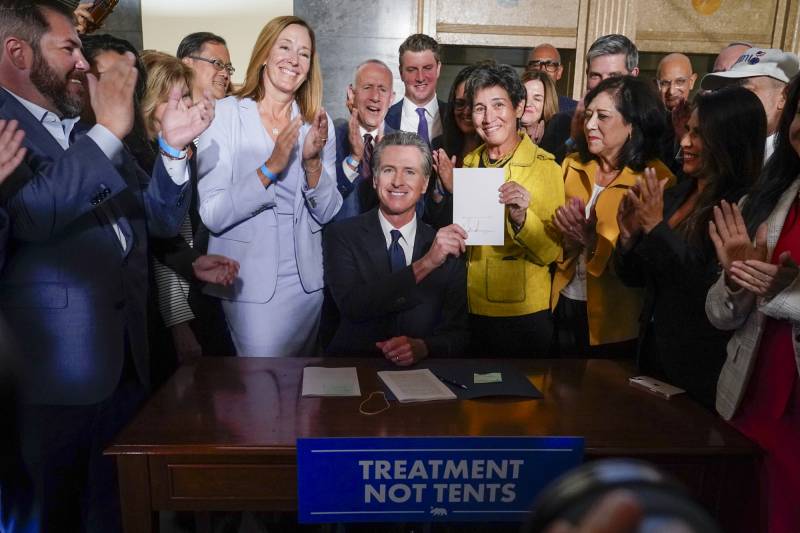“Counties have a significant and growing obligation to fund behavioral health services under the Medi-Cal entitlement and use MHSA funds to support that obligation,” according to the final Senate analysis of the bill. “This proposal leaves counties with fewer resources to do so, including less funding available to use as a Medi-Cal match to draw down additional federal dollars.”
AB 531 proposes a $6.38 billion bond, with the goal of providing 10,000 new beds and supportive housing units for those with severe behavioral health needs who, supporters of the plan argue, currently end up in emergency rooms or back on the streets.
Over $1 billion will be set aside for veterans with behavioral health needs. Supporters of the plan are promising community-based facilities, and not the locked state mental hospitals of years past.
Jolissa Hebard, an outreach supervisor with the National Alliance on Mental Illness in Westside Los Angeles, said she has lived with substance use and has relatives with bipolar disorder. She also has a son who has attempted suicide.
“The stuff that we are doing today is going to help families to help themselves and help their loved ones,” she said.
The Newsom administration pushed hard to win support for the mental health changes in the state Legislature and the governor will actively pitch his plan to voters next year, said Dana Williamson, Newsom’s chief of staff.
“If he were here, he’d tell you this is his biggest priority,” Williamson told KQED’s Political Breakdown last month.
